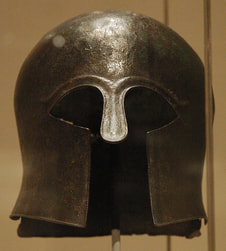Possible Scenario:
So you've written your novel/blog/op-ed/essay, and - with no small degree of trepidation - you've sent it off to an editor.
When you receive your sample edit, beta reading, or first round of edits, you're understandably wary but stoked to see what they think of your pride and joy over which you may have labored, sweating bullets, and shedding copious tears, or perhaps if flowed out of you like a gushing river.
I always recommend you read the cover letter and editorial report before opening the Word document! But even then, it can be a shock. Your beautiful manuscript may be covered in markings, the margins full of comments, questions, and suggestions.
As you scan through the feedback you might feel overwhelmed.
So you've written your novel/blog/op-ed/essay, and - with no small degree of trepidation - you've sent it off to an editor.
When you receive your sample edit, beta reading, or first round of edits, you're understandably wary but stoked to see what they think of your pride and joy over which you may have labored, sweating bullets, and shedding copious tears, or perhaps if flowed out of you like a gushing river.
I always recommend you read the cover letter and editorial report before opening the Word document! But even then, it can be a shock. Your beautiful manuscript may be covered in markings, the margins full of comments, questions, and suggestions.
As you scan through the feedback you might feel overwhelmed.
Just pause.
Breathe. Stretch.
Drink a glass of water.
Breathe some more. Stretch again.
Breathe. Stretch.
Drink a glass of water.
Breathe some more. Stretch again.
Let the overwhelm fade.
Then go back to carefully read and absorb the reactions and recommendations. Let the comments sink in, and try to see through their eyes.
Resist the instinct to react defensively or offensively.
Your editor doesn't hate your writing. They are, in fact, amazed by your creativity and impressed with what is obviously a huge accomplishment.
Eventually you'll see where the feedback highlights places or phrases that could probably use a bit of tweaking, that seem inconsistent, or where you could be clearer. The feedback poses pertinent plot questions or points out issues of sensitivity, and honestly reflects reactions you might get from readers.
This is what you needed, what you asked for, and what you are paying your editor or beta reader to do.
Then go back to carefully read and absorb the reactions and recommendations. Let the comments sink in, and try to see through their eyes.
Resist the instinct to react defensively or offensively.
Your editor doesn't hate your writing. They are, in fact, amazed by your creativity and impressed with what is obviously a huge accomplishment.
Eventually you'll see where the feedback highlights places or phrases that could probably use a bit of tweaking, that seem inconsistent, or where you could be clearer. The feedback poses pertinent plot questions or points out issues of sensitivity, and honestly reflects reactions you might get from readers.
This is what you needed, what you asked for, and what you are paying your editor or beta reader to do.
Making ourselves vulnerable by inviting critique is an act of incredible bravery.
And there is no doubt that assessments of our writing can feel very personal. It is difficult to separate our selves from our work.
But the critique is not of you or even of your talent. A good editor wants your work to reach a state that communicates your thoughts and intentions clearly to your readers. This often requires many drafts and collaborative effort.
Your editor may also offer an honest assessment of the stage you are in as you learn skills and develop techniques to become a better writer and self editor.
However, even though we know we need and have asked for help, most of us aren't able to throw off our defensive armor completely. We may expect to receive a blow in a spot that is already bruised, so we instinctively raise our shields.
And there is no doubt that assessments of our writing can feel very personal. It is difficult to separate our selves from our work.
But the critique is not of you or even of your talent. A good editor wants your work to reach a state that communicates your thoughts and intentions clearly to your readers. This often requires many drafts and collaborative effort.
Your editor may also offer an honest assessment of the stage you are in as you learn skills and develop techniques to become a better writer and self editor.
However, even though we know we need and have asked for help, most of us aren't able to throw off our defensive armor completely. We may expect to receive a blow in a spot that is already bruised, so we instinctively raise our shields.
If you are someone who resists or resents or just can't seem to lean in to constructive correction or suggestions for improving your work or skills, try to re-frame the experience. Think of it like this:
A good editor is like a good massage therapist.
You wouldn't experience any lasting benefit from an entirely pleasant, soothing experience on the massage table. Sure it feels nice now, but it isn't helping to unknot your muscles or bring long-term healing or ease.
A good massage therapist invites you into a safe environment they've created very deliberately. It's warm and welcoming to help you relax and feel comfortable. They ask if you have any specific concerns or if they should focus on any particular spots. They continue to ask questions to get to know you - like what do you do, do you work out, what issues or injuries have you had in the past - while warming up your muscles.
Their warm, sensitive, experienced hands search out and find your tight, strained, knotted, or misaligned muscles. And they alternate between soothing and digging into your muscles - often finding WAY more problem spots than you had any idea were there.
This can certainly cause discomfort in the short run. And if you remain tense, defensive and resistant, very little will be accomplished. You'll leave in not much better shape than when you arrived.
A good massage therapist may recommend stretches or exercises or adjustments in your posture to help you grow stronger and avoid these issues in future. If you don't heed this advice or view it as criticism of you as a person, you will have wasted your money and time and will not progress or improve.
Their goal is to ease chronic discomfort and enhance mobility. If you trust them, if you can relax and surrender to the process, work with them, and follow their advice going forward, your body will benefit from the attention. After some time, maybe some training or exercise, you'll be able to move more freely and without pain.
A good editor is like a good massage therapist.
You wouldn't experience any lasting benefit from an entirely pleasant, soothing experience on the massage table. Sure it feels nice now, but it isn't helping to unknot your muscles or bring long-term healing or ease.
A good massage therapist invites you into a safe environment they've created very deliberately. It's warm and welcoming to help you relax and feel comfortable. They ask if you have any specific concerns or if they should focus on any particular spots. They continue to ask questions to get to know you - like what do you do, do you work out, what issues or injuries have you had in the past - while warming up your muscles.
Their warm, sensitive, experienced hands search out and find your tight, strained, knotted, or misaligned muscles. And they alternate between soothing and digging into your muscles - often finding WAY more problem spots than you had any idea were there.
This can certainly cause discomfort in the short run. And if you remain tense, defensive and resistant, very little will be accomplished. You'll leave in not much better shape than when you arrived.
A good massage therapist may recommend stretches or exercises or adjustments in your posture to help you grow stronger and avoid these issues in future. If you don't heed this advice or view it as criticism of you as a person, you will have wasted your money and time and will not progress or improve.
Their goal is to ease chronic discomfort and enhance mobility. If you trust them, if you can relax and surrender to the process, work with them, and follow their advice going forward, your body will benefit from the attention. After some time, maybe some training or exercise, you'll be able to move more freely and without pain.
I'm sure you see where I'm going with this. I think it's a pretty apt analogy!
I hope you can step back from identifying personally with your writing and relax into the process. Focus on improving your technique and skills with the help of your trusted editor.
And visit them regularly. The better they know your work, your voice, and your concerns, the more help they will be as you polish and prepare your work for publication.
I hope you can step back from identifying personally with your writing and relax into the process. Focus on improving your technique and skills with the help of your trusted editor.
And visit them regularly. The better they know your work, your voice, and your concerns, the more help they will be as you polish and prepare your work for publication.
“I loved how personable Kate was during our chats and emails, making it feel like I was talking to a good friend, and she was always open to explaining her suggestions if I didn’t understand something. She has this way of still being friendly while offering critiques, so I never felt like I was being made fun of for missing things. I felt like Kate wanted what was best for my story and really put her heart into helping in any way she could.”
- Author Michelle A. Marie
Proudly powered by Weebly



